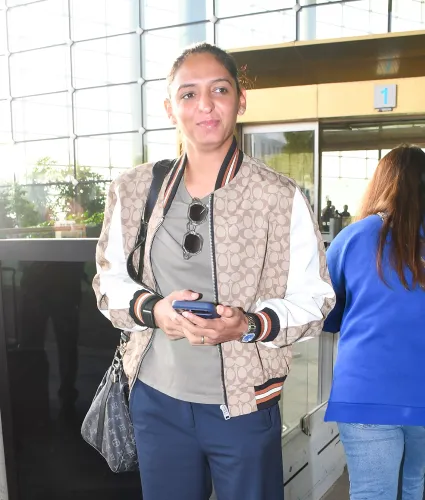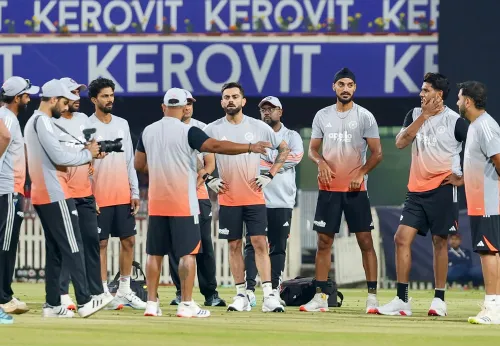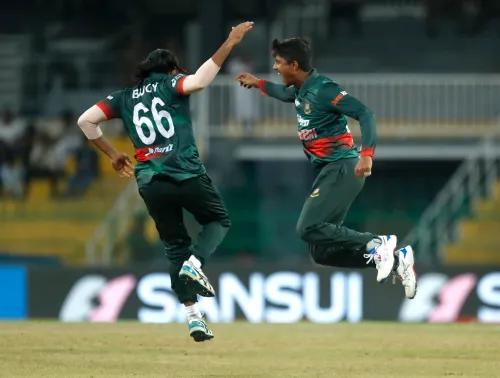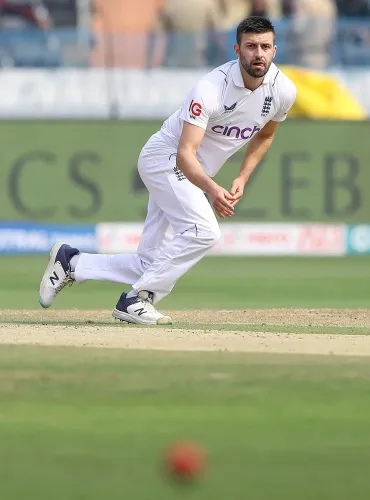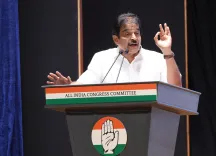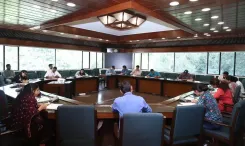49% of Indians Optimistic About CT Victory, Only 17% Recognize Pakistan as Host: Ipsos
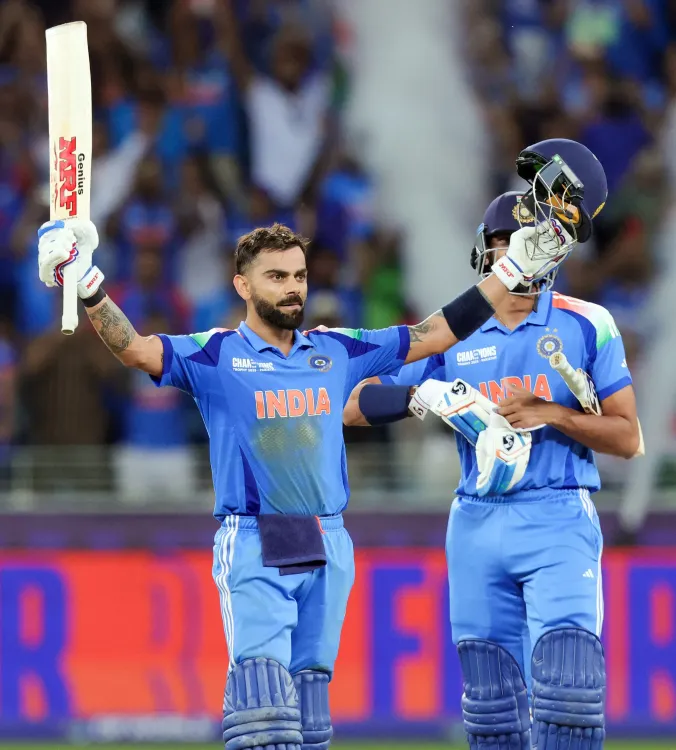
Synopsis
Key Takeaways
- 59% of Indians are interested in ICC Champions Trophy.
- 49% express hope for India's victory.
- Awareness of Pakistan as host is only 17%.
- High excitement levels noted in metropolitan areas.
- Day-night matches preferred by 36% of respondents.
New Delhi, Feb 28 (NationPress) Following India's confirmation of a semifinals spot in the Champions Trophy, the Ipsos IndiaBus reveals that 59 percent of Indians express interest in the tournament, while 35 percent show disinterest and 6 percent remain neutral.
Nevertheless, enthusiasm is palpable across various demographics, particularly among those who are interested. 81 percent reported feeling excited about the event, with both men and women equally represented at 81 percent. Segmentation reveals high excitement among SEC A (89 percent), SEC B (78 percent), and SEC C (77 percent).
In metropolitan areas, the excitement peaks at 92 percent. Regionally, there’s a diverse mix of enthusiasm: the west and north both at 83 percent, the east at 79 percent, and the south at 77 percent demonstrate majority excitement for the tournament.
The 9th edition of the ICC Champions Trophy features the top eight ranked teams from the 2023 Cricket World Cup: India, Bangladesh, New Zealand, and Pakistan in Group A, while Group B includes Australia, England, South Africa, and Afghanistan, generating significant excitement among cricket fans.
Interestingly, 66 percent of participants expressed excitement about the teams and players involved, with 30 percent attributing their enthusiasm to the tournament’s format and schedule.
This was further confirmed as more respondents preferred day-night matches (36 percent) and night matches (21 percent) over day matches (14 percent).
When assessing India's chances of winning the trophy, opinions varied: 49 percent were very hopeful, 31 percent held cautious views, and 20 percent felt less optimistic, according to the survey data.
Notably, awareness of Pakistan as the host nation for the ICC Champions Trophy 2025 was surprisingly low. Only 17 percent recognized Pakistan as the host, while 49 percent mistakenly thought it was India, and 28 percent were undecided. Even England (4 percent) and Australia (2 percent) were incorrectly identified as potential hosts.
Cricket serves as a unifying force across various demographics, regions, and social classes. As Parijat Chakraborty, Group Service Line Leader at Ipsos India, states: “Cricket is a religion in India, with the sport boasting the highest engagement. The presence of world-class teams playing in the ODI format adds to its allure for fans.”
Chakraborty further explains that until December 2024, India had not confirmed its participation, insisting on a neutral venue. The confirmation came just two months prior to the kickoff. “Awareness-building efforts likely began much later, with sponsors being secured and final arrangements being made, contributing to the low awareness among the populace,” he noted.
The Ipsos IndiaBus is a monthly nationwide omnibus survey, which includes various client surveys. It employs a structured questionnaire administered by Ipsos India on diverse topics among over 2200 respondents from SEC A, B, and C households, spanning all four regions of the country.
This survey is conducted in metros and Tier 1, Tier 2, and Tier 3 towns, providing a comprehensive and representative view of urban Indians. Respondents are surveyed both face-to-face and online.
Ipsos ensures city-level quotas for each demographic segment to maintain consistency across survey waves, minimizing sampling errors. The data is weighted by demographics and city-class populations to derive national averages.
–IANS

